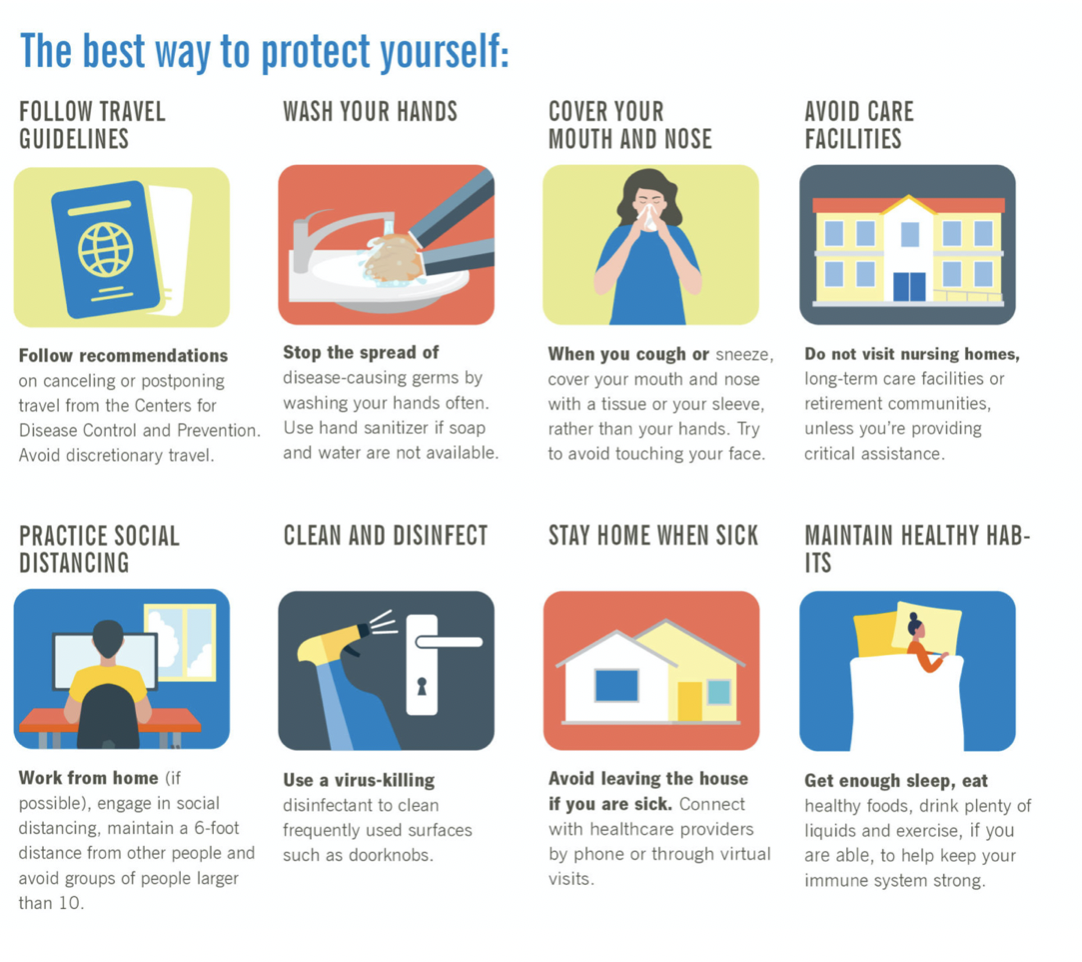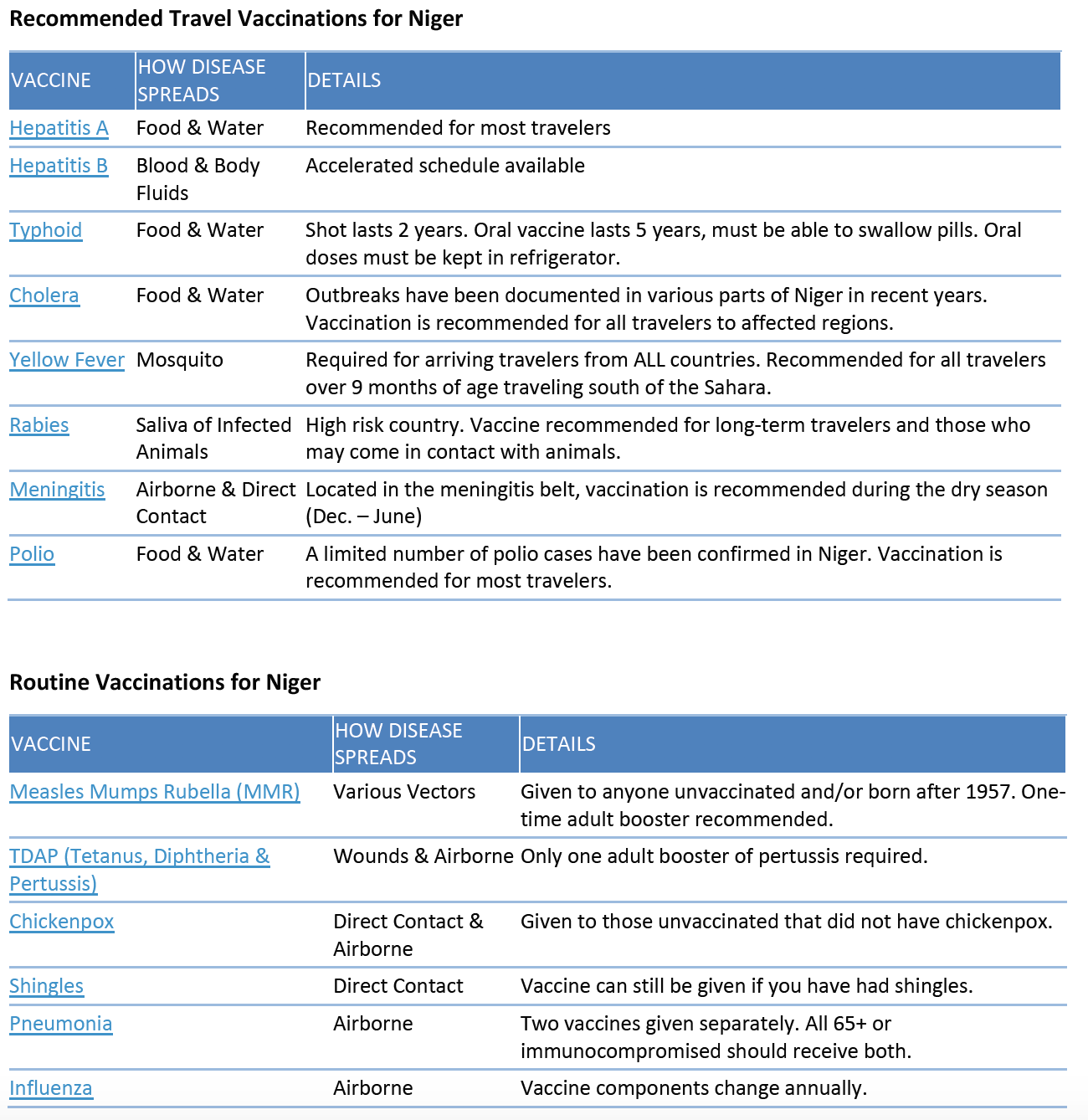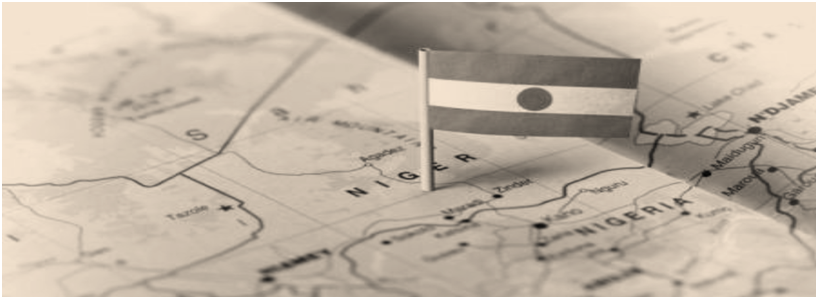
Weekly Highlight
- More than 20 killed in attacks in west of Niger
- Boko Haram jihadists in deadly clash with army in southwestern Niger
- Gamkalé Military Hospital: cleaning products & protective equipment offered FAN by the USA
- Authorities extended a suspension of all international commercial flights until 23 May 20
- Niger exchange rate – Exchange rates West African CFA franc – USD = 600.896 XOF XOF= 0.00166418 USD
EXECUTIVE SUMMARY
More than 20 killed in attacks in west of Niger
Bandits riding motorbikes killed 20 villagers in a string of attacks in Niger’s western region of Tillaberi, the governor there told AFP on Sunday. An unknown number of “armed bandits” attacked three villages on Sunday at around 5:30 pm local time (1630 GMT), said governor Tidjani Ibrahim Katiella. He said that the assailants “pillaged shops” and looted cereal as well as cattle before heading off towards the north. One local source named villages targeted as Gadabo, Zibane Koira-Zeno and Zibane-Tegui, all administered by Anzourou, a commune some 50 kilometres (30 miles) from Tillaberi city, the main town in western Niger and some 100 kilometres from the border with Mali.
Boko Haram jihadists in deadly clash with army in southwestern Niger
Boko Haram fighters clashed with government forces on Sunday 03rd May in Diffa, the largest city in southwestern Niger, in what the jihadists said was a successful attack on a military camp. Conflicting versions of the outcome emerged on Tuesday, with the Islamists claiming to have overrun the site but local residents telling AFP that the assailants had been repelled. A propaganda video released by the Islamic State West Africa Province (ISWAP), a Boko Haram splinter group affiliated to the so-called Islamic State, purports to show heavily armed insurgents storm an army camp following sustained fighting and heavy weapons fire.
Gamkalé Military Hospital: cleaning products & protective equipment offered FAN by the USA
The United States of America has just made available to the Nigerian Armed Forces a large batch of equipment in the fight against COVID-19. It was the Central Director of the Army Health Service and Social Action, the Doctor Colonel-Major Ibrahim Moussa Adam who received the equipment from the hands of the Embassy of the United States in Niger, HE Eric P. Whitaker. Worth $ 15,000, this gift consists of 150 boxes of masks, 200 boxes of gloves, 245 bottles of disinfectants, 150 boxes of soap, 415 bottles of bleach.
UAE sends medical aid to Niger in fight against COVID-19
The United Arab Emirates today sent an aid plane containing six metric tons of medical supplies to Niger to bolster the country’s efforts to curb the spread of COVID-19. The aid will assist approximately 6,000 medical professionals as they work to combat the virus. Commenting on the aid delivery, Amer Al Menhali, Charge d’Affaires of the UAE Embassy in Chad, stated, “Aid to Niger comes as part of the UAE’s efforts to ensure that medical professionals throughout Africa, especially those in the Sahel region, have access to the necessary personal protective equipment to enable their critical work on the frontlines of fighting COVID-19.”
Authorities extended a suspension of all international commercial flights until 23 May 20
On Monday, 4th May, authorities extended a suspension of all international commercial flights until 23 May, in an effort to contain the spread of the coronavirus disease (COVID-19). A ban of movement in and out of Niamey remains in effect until at least 23 May. As of 06 May, a nationwide curfew between 2100 and 0500 (local time) remains in place, and Niger’s borders remain closed except for cargo and emergency services. The wearing of face masks is also mandatory in public spaces.
USEFUL INFORMATION
List of holidays in Niger 2020
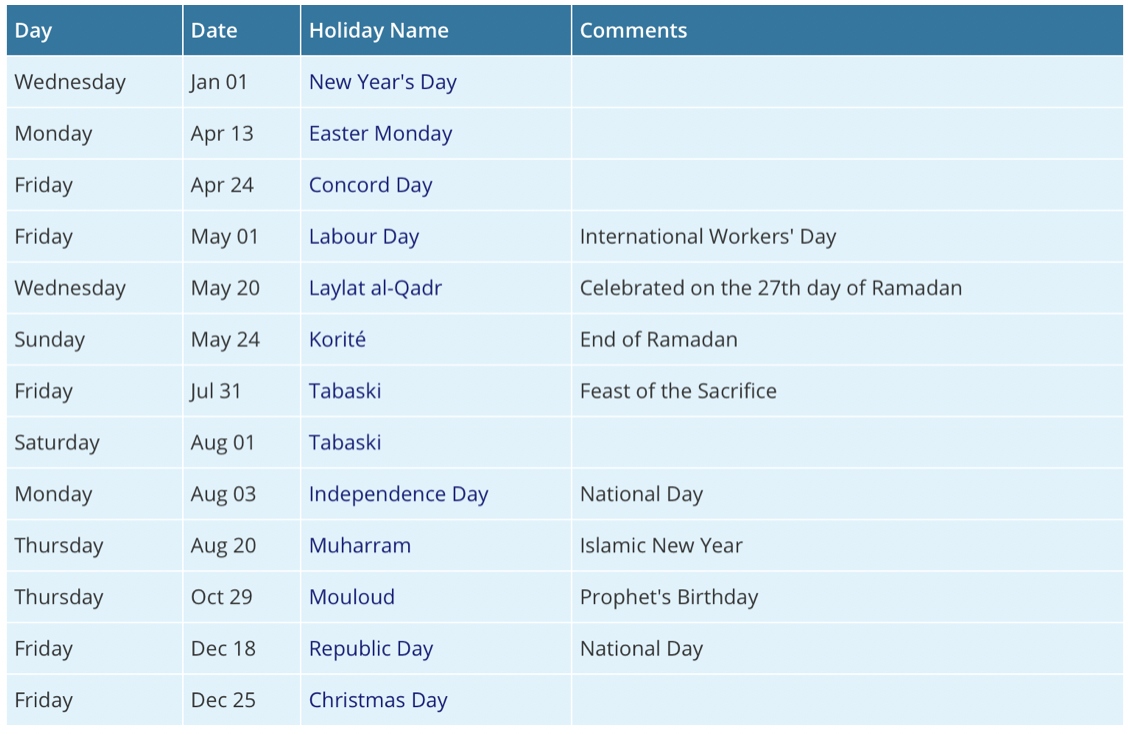
Exchange rates West African CFA franc
According to our most recent information (10th May 2020) the West African CFA franc has the following exchange rates.
The exchange rate from your own bank or credit card company will differ somewhat from the exchange rates as mentioned above. Your bank or credit card company might also apply additional international charges.
| USD = 600.896 XOF | XOF= 0.00166418 USD |
| EUR = 655.957 XOF | XOF= 0.00152449 EUR |
| **As at 10 May 2020 |
NIGER SECURITY & RISK LEVELS
Global Health Advisory
The Department of State advises U.S. citizens to avoid all international travel due to the global impact of COVID-19. In countries where commercial departure options remain available, U.S. citizens who live in the United States should arrange for immediate return to the United States, unless they are prepared to remain abroad for an indefinite period.
At present the Department of State is making every effort to assist U.S. citizens overseas who wish to return to the United States. As the Covid-19 situation develops, our ability to provide such assistance working with commercial airlines or arranging for evacuation flights may become more limited or even unavailable. In recent weeks, commercial airlines have significantly reduced flight schedules and countries have closed airports and borders with little advance notice. If you wish to return to the United States, you should make arrangements to do so now and contact the nearest U.S. Embassy or Consulate for assistance as needed. There is no guarantee that the Department of State will be able to continue to provide repatriation assistance and transportation options to the United States may be unavailable in the future. If you choose to remain overseas, you should be prepared to remain where you are for the foreseeable future.
U.S. citizens who live abroad should avoid all international travel. Many countries are experiencing COVID-19 outbreaks and implementing travel restrictions and mandatory quarantines, closing borders, and prohibiting non-citizens from entry with little advance notice. Airlines have cancelled many international flights and several cruise operators have suspended operations or cancelled trips. If you choose to travel internationally, your travel plans may be severely disrupted, and you may be forced to remain outside of the United States for an indefinite timeframe.
On March 14, the Department of State authorized the departure of U.S. personnel and family members from any diplomatic or consular post in the world who have determined they are at higher risk of a poor outcome if exposed to COVID-19 or who have requested departure based on a commensurate justification. These departures may limit the ability of U.S. Embassies and consulates to provide services to U.S. citizens.
If you decide to travel abroad or are already outside the United States:
- Consider returning to your country of residence immediately using whatever commercial means are available.
- Have a travel plan that does not rely on the U.S. Government for assistance.
- Review and follow the CDC’s guidelines for the prevention of coronavirus.
- Check with your airline, cruise lines, or travel operators regarding any updated information about your travel plans and/or restrictions.

NIGER INCIDENT MAPPING
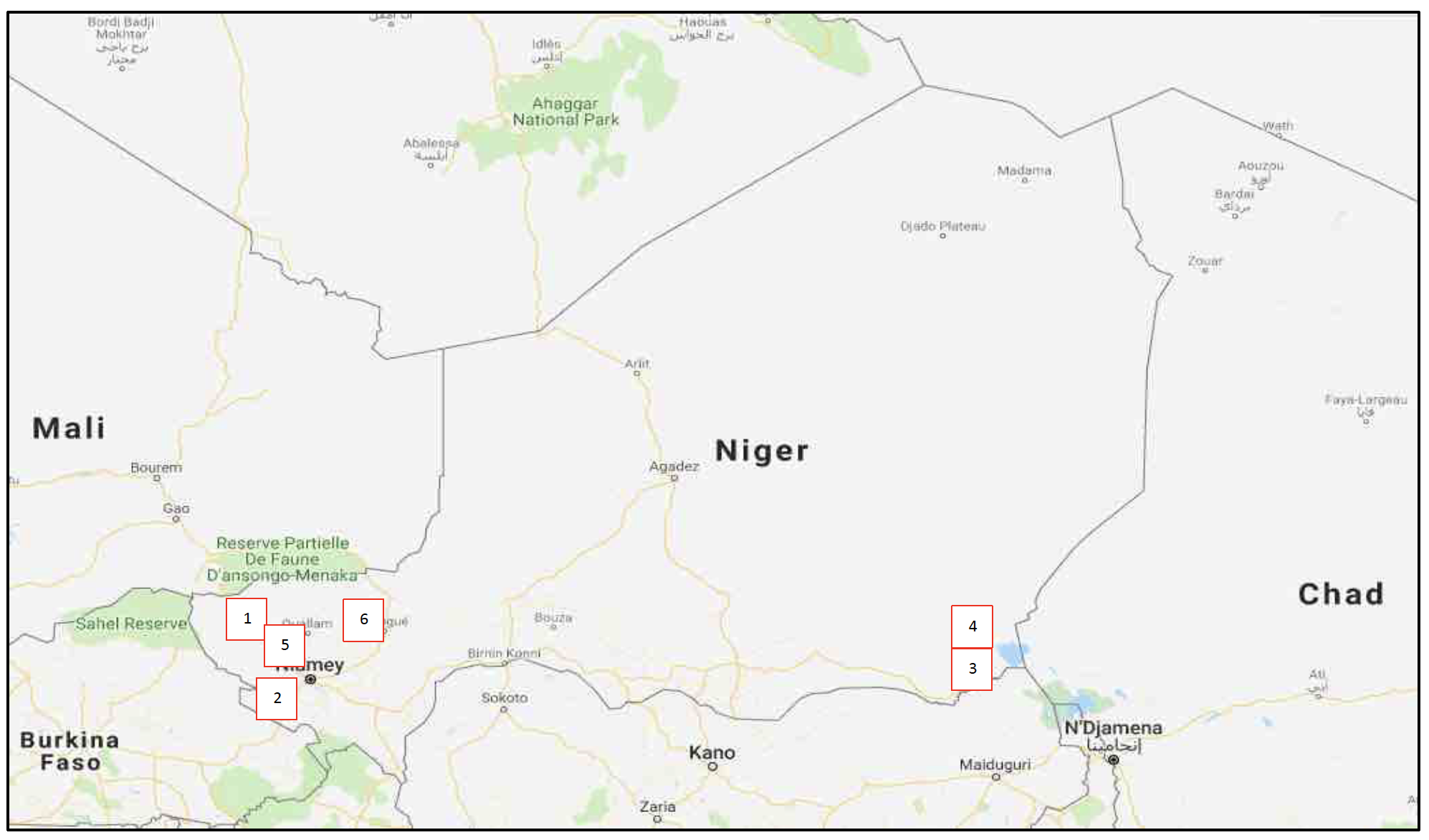
NIGER INCIDENTS IN DETAIL
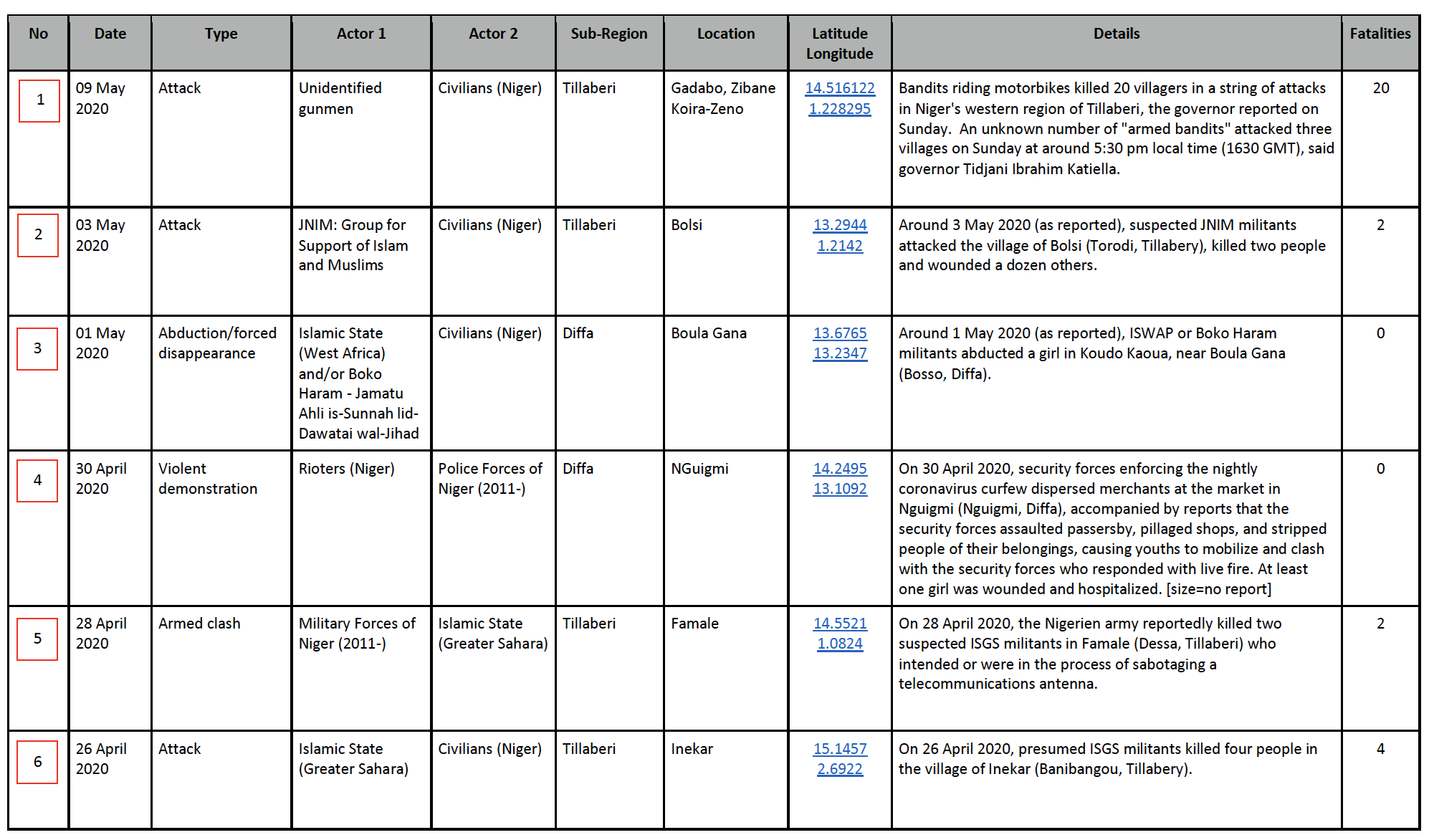
More than 20 killed in attacks in west of Niger
Bandits riding motorbikes killed 20 villagers in a string of attacks in Niger’s western region of Tillaberi, the governor reported on Sunday. An unknown number of “armed bandits” attacked three villages on Sunday at around 5:30 pm local time (1630 GMT), said governor Tidjani Ibrahim Katiella. He said that the assailants “pillaged shops” and looted cereal as well as cattle before heading off towards the north. One local source named villages targeted as Gadabo, Zibane Koira-Zeno and Zibane-Tegui, all administered by Anzourou, a commune some 50 kilometres (30 miles) from Tillaberi city, the main town in western Niger and some 100 kilometres from the border with Mali.
Last January, Niger authorities restricted motorcycle traffic by day as well as night in a bid to crack down on jihadists operating in the region. They also closed down a number of food markets they said were “supplying terrorists with fuel and cereals,” according to the governor. The government recently extended a state of emergency in the region first brought in in 2017.
Boko Haram jihadists in deadly clash with army in southwestern Niger
Boko Haram fighters clashed with government forces on Sunday 03 May 20 in Diffa, the largest city in southwestern Niger, in what the jihadists said was a successful attack on a military camp. Conflicting versions of the outcome emerged on Tuesday, with the Islamists claiming to have overrun the site but local residents telling AFP that the assailants had been repelled.
A propaganda video released by the Islamic State West Africa Province (ISWAP), a Boko Haram splinter group affiliated to the so-called Islamic State, purports to show heavily armed insurgents storm an army camp following sustained fighting and heavy weapons fire. A soldier is seen lying face-down on the ground, either dead or unconscious, and being shot twice. The assailants then leave the camp with military vehicles and weapons to the cries of Allahu Akbar (God is greatest). The area around Diffa, a city of around 200,000 people located near the Nigerian border, has been repeatedly attacked by the jihadist group, which emerged in Nigeria in 2009. Local people testified that they heard the sound of heavy fighting. “We heard gunfire, especially heavy weapons, between 4:30 pm and 7:00 pm on the southern side of the city,” Lawan Boukar, a local resident, said.
POLITICAL OVERVIEW
Faced with the persistence of the appearance of new cases of COVID-19 in Niger, the government decided Friday to maintain all the preventive measures taken previously to fight against the spread of the epidemic of new coronavirus in the country. According to a report made public the same day by the Nigerian Ministry of Health, 795 patients were declared positive for COVID-19, among which 151 are being treated, 600 are cured, while 44 died, said the government in a statement. Despite a “favorable situation with regard to the development” of the epidemic, “outside the Zinder region (south-east) which is recording more and more cases”, the Council of Ministers decided before the persistence of the appearance of new cases that all measures already taken are maintained.
For millions of Nigeriens, the month of Ramadan is a holy period for believers to renew their faith through strict fasting, fervent prayer, reading of the Quran, spiritual meditation, and charitable deeds. All of these actions reflect the core values of Islam – peace, mercy, compassion, and respect for others. It is also a time to deepen one’s spiritual growth, strengthen one’s faith, and gain a renewed sense of appreciation for life. In this spirit of reflection, those observing Ramadan can strengthen Niger’s communities, help those in need, and serve as good examples for how to live holy lives. I am hopeful that those who observe this sacred time find comfort and reassurance in their faith. I also note that millions of Muslims in the United States share in celebrating this sacred occasion, underscoring the American dedication to freedom of religious practice and belief. I wish all of our Muslim brothers and sisters a peaceful and blessed Ramadan. Ramadan kareem!
On the occasion of an open debate on the theme, “Towards the 5th Anniversary of the ‘Youth, Peace and Security’ agenda: Accelerating the implementation of resolutions 2250 and 2419, the Permanent Representative of Niger to the UN , SEM. Abdou Abarry said that “Our continent has the fastest growing population. If this is an unprecedented opportunity, it also represents a difficult task for our African countries: creating the conditions for a secure future in an interconnected world where the pace of change is accelerating. A fully empowered young population could enable African countries to reap the benefits of the demographic dividend. However, if it is not exploited, a large population of unemployed young people could be a hotbed of social discontent, unrest and conflict. Valuing the potential of millions of young Africans would be a major change for Africa and for the world.”
In the circular N ° 008 / MJ / GS / SG of May 7, 2020, the Minister of justice, noting a slowing down or even stopping in certain cases of the public service at the level of justice under the pretext of the measures decreed. In order to protect populations from coronavirus disease, the Minister invites the heads of courts to resume work from Monday, May 11, 2020 in all jurisdictions and to ensure compliance with barrier measures including the observance of social distancing, regular hand washing and mandatory wearing of protective masks by staff and users of the public service to avoid any risk of spreading the disease. Also, the Minister decides to resume visits to detainees by their spouse or their direct relatives with their supporting documents from May 11, 2020.
MEDICAL REQUIREMENTS AND INFORMATION
Vaccinations required to enter the country
Proof of vaccination against yellow fever is required over one year of age entering the country. The government of Niger recommends vaccine for travelers departing Niger.
CORNONAVIRUS DISEASE (COVID-19) ADVISE FOR THE PUBLIC
Protecting yourself and others from the spread COVID-19
You can reduce your chances of being infected or spreading COVID-19 by taking some simple precautions:
- Regularly and thoroughly clean your hands with an alcohol-based hand rub or wash them with soap and water. Why? Washing your hands with soap and water or using alcohol-based hand rub kills viruses that may be on your hands.
- Maintain at least 1 metre (3 feet) distance between yourself and others. Why? When someone coughs, sneezes, or speaks they spray small liquid droplets from their nose or mouth which may contain virus. If you are too close, you can breathe in the droplets, including the COVID-19 virus if the person has the disease.
- Avoid going to crowded places. Why? Where people come together in crowds, you are more likely to come into close contact with someone that has COIVD-19 and it is more difficult to maintain physical distance of 1 metre (3 feet).
- Avoid touching eyes, nose and mouth. Why? Hands touch many surfaces and can pick up viruses. Once contaminated, hands can transfer the virus to your eyes, nose or mouth. From there, the virus can enter your body and infect you.
- Make sure you, and the people around you, follow good respiratory hygiene. This means covering your mouth and nose with your bent elbow or tissue when you cough or sneeze. Then dispose of the used tissue immediately and wash your hands. Why? Droplets spread virus. By following good respiratory hygiene, you protect the people around you from viruses such as cold, flu and COVID-19.
- Stay home and self-isolate even with minor symptoms such as cough, headache, mild fever, until you recover. Have someone bring you supplies. If you need to leave your house, wear a mask to avoid infecting others. Why? Avoiding contact with others will protect them from possible COVID-19 and other viruses.
- If you have a fever, cough and difficulty breathing, seek medical attention, but call by telephone in advance if possible and follow the directions of your local health authority. Why? National and local authorities will have the most up to date information on the situation in your area. Calling in advance will allow your health care provider to quickly direct you to the right health facility. This will also protect you and help prevent spread of viruses and other infections.
- Keep up to date on the latest information from trusted sources, such as WHO or your local and national health authorities. Why? Local and national authorities are best placed to advise on what people in your area should be doing to protect themselves.
Advice on the safe use of alcohol-based hand sanitizers
To protect yourself and others against COVID-19, clean your hands frequently and thoroughly. Use alcohol-based hand sanitizer or wash your hands with soap and water. If you use an alcohol-based hand sanitizer, make sure you use and store it carefully.
- Keep alcohol-based hand sanitizers out of children’s reach. Teach them how to apply the sanitizer and monitor its use.
- Apply a coin-sized amount on your hands. There is no need to use a large amount of the product.
- Avoid touching your eyes, mouth and nose immediately after using an alcohol-based hand sanitizer, as it can cause irritation.
- Hand sanitizers recommended to protect against COVID-19 are alcohol-based and therefore can be flammable. Do not use before handling fire or cooking.
- Under no circumstance, drink or let children swallow an alcohol-based hand sanitizer. It can be poisonous.
- Remember that washing your hands with soap and water is also effective against COVID-19.
